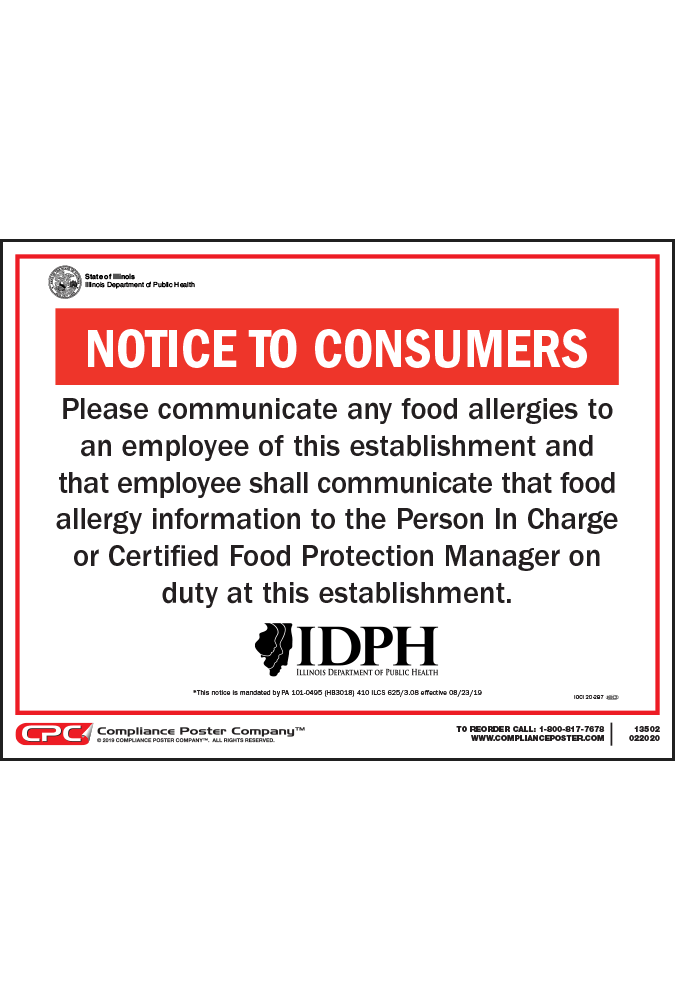Who must post the Illinois Notice to Consumers to Communicate Food Allergies Poster?
Beginning July 1, 2020, Illinois law requires restaurants to display a notice informing consumers that are required to communicate any food allergies to an employee of the restaurant as provided on the Illinois Notice to Consumers to Communicate Food Allergies Poster.
- “Restaurant” means any business that is primarily engaged in the sale to ready to eat food for immediate consumption
- “Primarily engaged” means having sales of ready to eat food for immediate consumption comprising at least 51% of total sales excluding the sale of liquor.
What are content and posting requirements of the Illinois Notice to Consumers to Communicate Food Allergies?
The Notice to Consumers to Communicate Food Allergies Poster contains text that the Illinois Department of Public Health (IDPH) has approved for posting in restaurants. The notice informs consumers that any information regarding food allergies must be communicated to an employee of the restaurant. Then, that employee shall communicate that food allergy information to the Person in Charge (PIC) or Certified Food Protection Manager (CFPM) on duty at the establishment.
A restaurant is in compliance with the allergen signage requirement if a restaurant posts the signage approved by the IDPH and it is posted in an area where consumers can easily see it. There is no minimum or maximum size requirement for this allergen signage, but it must be visible to all consumers. (410 ILCS 625/3.08)
Why is posting the Notice to Consumers to Communicate Food Allergies Poster is important?
Communicating food allergies to restaurant employees and their certified food service sanitation managers can help avoid serving food ingredient and cross-contamination that might endanger susceptible restaurant patrons. Certified food service sanitation managers have training in basic allergen awareness principles which includes the following topics:
- the definition of a food allergy;
- the symptoms of an allergic reaction;
- the major food allergens;
- the dangers of allergens and how to prevent cross-contact;
- the proper cleaning methods to prevent allergen contamination;
- how and when to communicate to guests and staff about allergens;
- the special considerations related to allergens from workstations and self-serve areas;
- how to handle special dietary requests;
- dealing with emergencies, including allergic reactions;
- the importance of food labels;
- how to handle food deliveries in relation to allergens;
- proper food preparation for guests with food allergies; and
- cleaning and personal hygiene considerations to prevent contaminating food with allergens.


